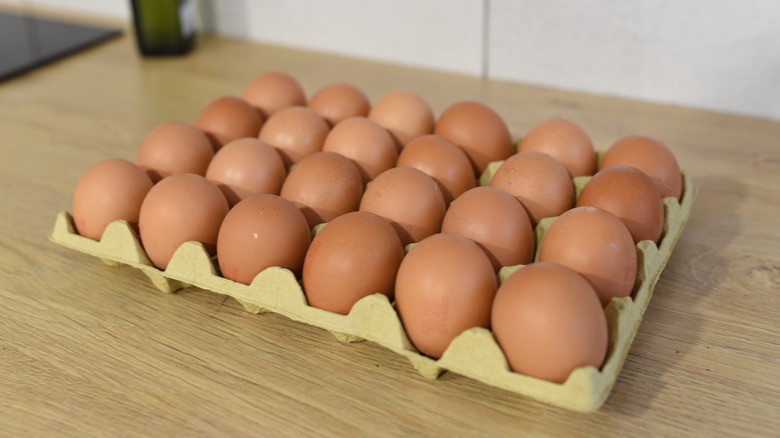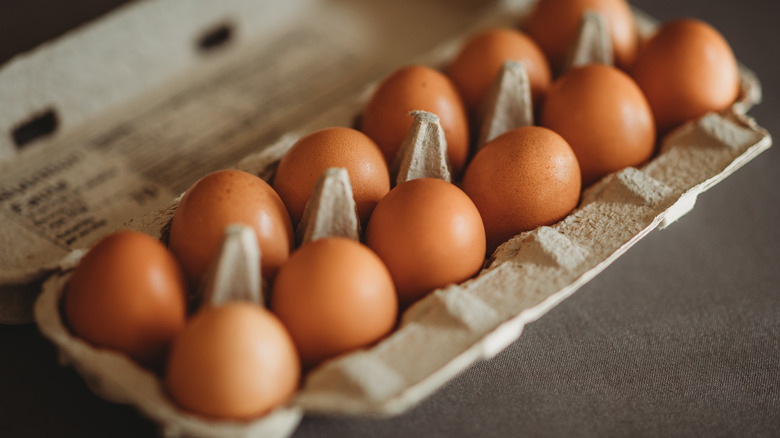Why You Shouldn't Wash Your Eggs Before Cooking Them
When you bring home fresh food home, it may be tempting to give it all a quick wash. You never know how many people have handled it in the store, or what else it may have come in contact with. Washing food can help remove some of that bacteria and help you feel a little more reassured about your meal.
However, that same suggestion doesn't apply to eggs. While it may be tempting to give each egg in your carton a quick wash when you get home from the grocery store, that may actually do more harm than good. In fact, according to the USDA, eggs are already washed while they are being processed and prepped for grocery store sales.
By the time eggs make it to store shelves, they have been coated with an edible mineral oil. This oil protects the eggs from bacteria, keeping them fresher longer in your fridge. Washing the eggs could strip this oil away, leaving the eggs — and yourself — at risk of contamination.
One blogger tested the oil's effectiveness
Jamie, a blogger on Prepared Housewives, decided to experiment with the mineral oil to see just how long the eggs would last with the coating. In one post, she began the process using a carton of fresh eggs, some drugstore-branded mineral oil, and protective gloves. She shared that a little went a long way — an eighth of a cup of the oil was enough for 24 eggs. She microwaved it for a few seconds to warm it up just a little before she began coating the eggs.
She ensured every egg was evenly coated with the oil, then placed them back in the carton, with the smaller pointed end facing downward. She suggests flipping the eggs to rest the opposite direction every so often in order to preserve the egg yolk while the eggs are in storage. But, if properly coated, she shared that the eggs can last anywhere from three months to a year, depending on the temperature they're stored at.
She followed up to share the results of the experiment a year later in another post. She included some unpreserved eggs as the control subjects, and shared that the mineral oil-coated eggs cooked up almost exactly like fresh eggs would. The uncoated eggs, meanwhile, were not nearly as appetizing.
Temperature has a hand in preservation, too
When it comes to storing eggs at home without adding some extra protection, they certainly shouldn't be stored for a whole year. The USDA recommends keeping your eggs in the fridge. Placement is important here, too. You should never keep your carton of eggs in the door of the fridge. The temperature fluctuation as the door is opened could cause the eggs to spoil faster. Instead, the carton should be stored where the fridge is coldest — which could be dependent on what kind of fridge you own.
If your fridge has a freezer compartment at the bottom, your eggs should be placed on the bottom shelves. However, if the fridge and freezer are side by side, and the ice maker sits at the top, you'll want to place the eggs higher up, closer to the ice maker. Regardless of what shelf the carton sits on, you'll want to place it towards the back of the fridge, furthest away from warmer, outside air when the door opens.


